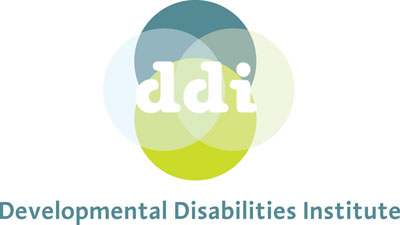The Michigan UCEDD Announces Several New Collaborations
August 3, 2016

|
MI-LEND Consortium
The Developmental Disabilities Institute (DDI) at Wayne State University, recently received funding for a Leadership Education in Neurodevelopmental and Related Disabilities (LEND) Program. The Michigan LEND (MI-LEND) is the state's first LEND program and one of the largest collaboration of universities within the AUCD LEND Network.
This interdisciplinary training program is a unique consortium of six universities, including Wayne State University, Michigan State University, University of Michigan, Western Michigan University, Central Michigan University and University of Michigan-Dearborn.
Michigan is a diverse region with two peninsulas which include heavily populated metropolitan areas as well as sparsely populated rural areas. Several industrial cities such as Flint and Detroit have gone through dramatic financial decline. Geographic and economic disparities across the state have created limitations for Michiganders to access needed diagnostic and treatment services. MI-LEND will help expand the number of providers available to diagnose and treat infants, children and adolescents with disabilities. Additionally, graduate-level and doctoral students from various professional disciplines across the state will now have an opportunity to participant in this new interdisciplinary leadership training program.
MI-LEND will be administered by DDI, and led by co-directors, Sharon Milberger Sc.D., Director of DDI and Jane Turner, M.D., pediatrician and professor at Michigan State University. Participating faculty and trainees will represent each of the consortium's six universities. MI-LEND will also work in collaboration with Michigan's Title V program (Children's Special Health Care Services), the Governor's Autism Council, the Michigan Chapter of the American Academy of Pediatrics, and other key statewide disability and advocacy organizations.
ARIE Co-Curricular Clinical Initiative with Wayne State University School of Medicine
DDI also collaborates with the Wayne State University School of Medicine on the ARIE Co-Curricular clinical initiative, to assist medical students in obtaining volunteer hours that enhances their educational curriculum. First and second year medical students receive an opportunity to meet with families who have children with intellectual, developmental and physical disabilities. DDI provides evidence based Family Support and Disability Awareness training to the medical students that participate in this project and to recruit families.
The goal of this project is to give medical students an opportunity to engage families as a holistic and dynamic system, to teach the unique stressors families are confronted with as they parent a child with a disability. The medical students coordinate the family visits; conduct a brief survey with the families, offer resources and an age appropriate gifts to the children. Parents and caregivers are compensated for their time to participate in the project.
Families that have participated have expressed how important they believe it is for future medical practitioners to recognize their unique circumstances as families who have children with disabilities. They expressed their gratitude for being able to participate in this valuable teaching opportunity. Last year, the medical students planned a celebration dinner for the families, and provided games, and live music at the event. This project is aligned with the mission of the Developmental Disabilities Institute which is to build inclusive communities for individuals with disabilities to promote the highest quality of life for each individual and their family.
Partnerships with the Michigan Department of Health and Human Services (MDHHS)
DDI is also proud to announce that they have received funding to continue their partnership with the MDHHS Behavioral Health and Developmental Disabilities Administration (BDHHA) to assess the state's readiness for compliance with the CMS rule on Home and Community Based Services. This past year, DDI assisted MDHHS/BHDDA to develop a survey tool for the individual, the residential provider, and the non-residential provider; piloted the surveys with a sample of Habilitation Supports Waiver recipients and their providers; and conducted a survey verification process. The tool assesses the individuals' and providers' perceptions of compliance with the new HCBS ruling. In the upcoming year, DDI will survey all Habilitation Supports Waiver recipients and their providers. In addition, DDI will prepare outreach and education materials to increase the awareness of individuals who received HCBS supports, their families, and providers about the HCBS ruling.
In addition, MDHHS received a three-year grant from the Centers of Disease Control directed at increasing education on diabetes prevention for people with disabilities. Working in collaboration with the National Kidney Foundation of Michigan, DDI will develop recommendations for implementing the Diabetes Prevention Program (DPP) with people with intellectual and developmental disabilities. The revised curriculum will be used to train DPP trainers statewide to improve the educational program for persons with disabilities. DDI staff will also utilize the disability network to disseminate information to people with disabilities to increase their participation in the DPP.
If you have any questions about any of the projects discussed please email the Developmental Disabilities Institute at, [email protected].







